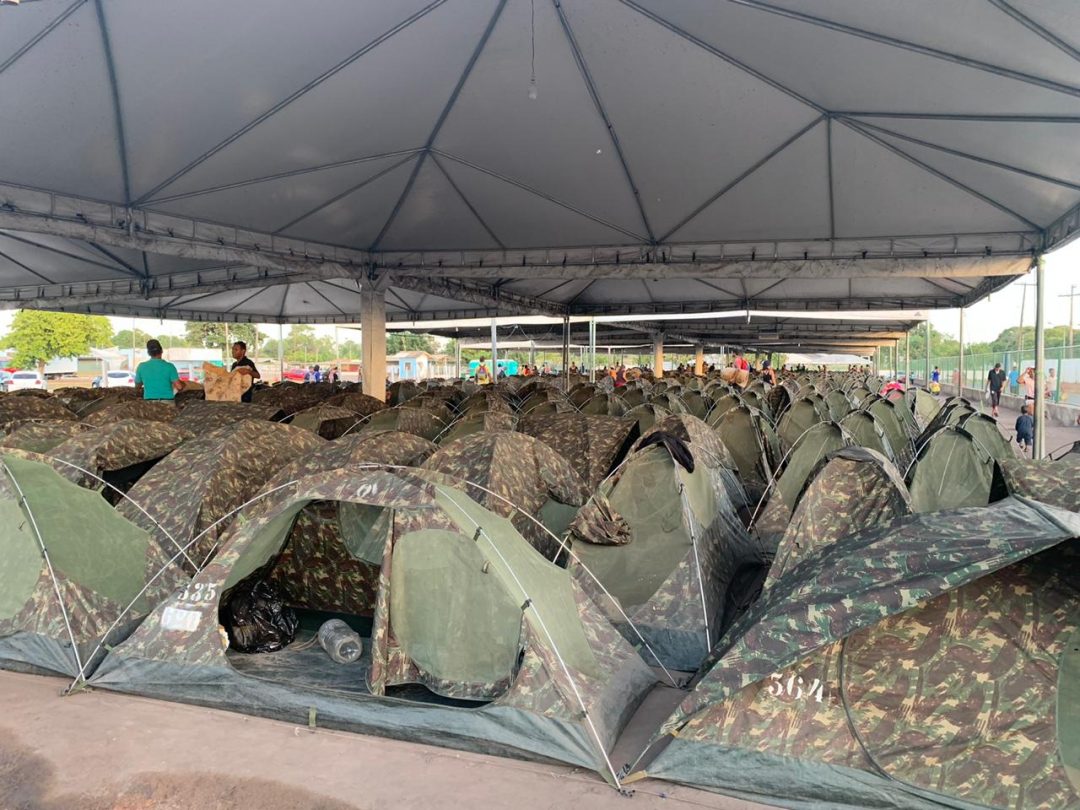The International Donors Conference in solidarity with Venezuelan Refugees and Migrants, an opportunity for complementarity with regional cooperation between the European Union and Latin America (By Juan Manuel Santomé, director of EUROsociAL+).

International reception centre in Brazil for Venezuelan migrants
The current health crisis caused by Covid-19 directly affects migration flows and the humanitarian situation of migrants. In some cases, both in Europe and Latin America, return processes are taking place, although they are still timid, given the lack of protection and attention in the destination countries, which are having to dedicate a large part of their diminished resources and almost non-existent fiscal space to combat the socio-economic effects of the pandemic. In other cases, the classic flow from countries of origin to destination is being maintained, although logically with less intensity.
In Latin America, in recent years, the Venezuelan migratory process towards countries in the region and also towards the United States and Europe has added to the traditional Meso-American migratory corridors (flows from Central American countries to Mexico, first, and then to United States), which have gone on for decades and which were amplified in 2019 by the caravanas phenomenon). It is the most intense migratory flow in the world after that of Syria, reaching to date 5.1 million Venezuelan emigrants, of which 1.8 million are on Colombian soil, more than eight hundred thousand in Peru and more than three hundred thousand in the United States; Brazil, Chile and Ecuador, among other host countries.
The conjunction and severity of both phenomena, Venezuelan mass migration and the impact of the health crisis, led to the promotion of a Donors Conference on 26 May 2020 by the European Union and the Spanish Government, with the support of the United Nations Agency for Refugees (UNHCR) and the International Organization for Migration (IOM). The scarce fiscal space and difficulty in mobilising domestic resources in sufficient quantity in the short term on the part of host countries, together with the extreme vulnerability of the migrant population in the context of the Covid-19, forced, for humanitarian reasons, both development banks and donor countries to join forces to provide a coordinated and effective response to this situation, which if not addressed decisively will have unpredictable and serious consequences. Despite the financial difficulties, there is a general consensus on the need to provide the migrant population with the utmost care and attention not only in terms of protection of human rights, but also to prevent them from becoming a collective-multiplier of contagion as pointed out by the United Nations.
From the EUROsociAL+ Programme, as part of the regional cooperation by the European Union with Latin America, we join those voices at the Donors Conference and make available to it all our experience, friendship networks and relational capital that may prove useful. The region certainly needs a significant injection of extraordinary financial cooperation resources to provide the millions of Venezuelan migrants, who are in situations of extreme vulnerability, with coverage and protection. But it may also be useful at this time to facilitate access to knowledge, the exchange of experiences on care for the migrant population in the context of the Covid-19, both between Latin American countries and between Europe and Latin America. Knowledge that should guide the allocation of financial resources (reimbursable and non-reimbursable) under the logic of policy first. This is the role and the added value that a Programme such as EUROsociAL+ can perhaps provide now. Facilitating spaces for dialogue and exchange between policy makers on contingency and reconstruction measures in the context of health crises targeting vulnerable groups, including migrants. These measures include linking short-term measures with more structural reforms to establish a single register of migrants; national employment systems and systems of social protection; measures to facilitate access to justice for migrant groups; curricular adaptations to take advantage of the validating the skills of Venezuelan migrants, many of them with excellent training and who are in fact already making a substantive contribution to the human development of host countries; care for unaccompanied migrant children; measures to combat gender violence and trafficking, etc.
It is certain that the issue of migration has scope and solutions that transcend the national sovereignty of the host countries and that require a regional response. It is therefore also the objective of the regional cooperation between the European Union and Latin America, of which EUROsociAL+ is a part, to strengthen as far as possible regional integration processes, multi-country spaces for mutual learning and coordination, etc.
From EUROsociAL+, therefore, we join this coordinated response to accompany the Venezuelan people in this exceptional historical situation that really requires exceptional responses.
By Juan Manuel Santomé, director of the EUROsociAL+ Programme



